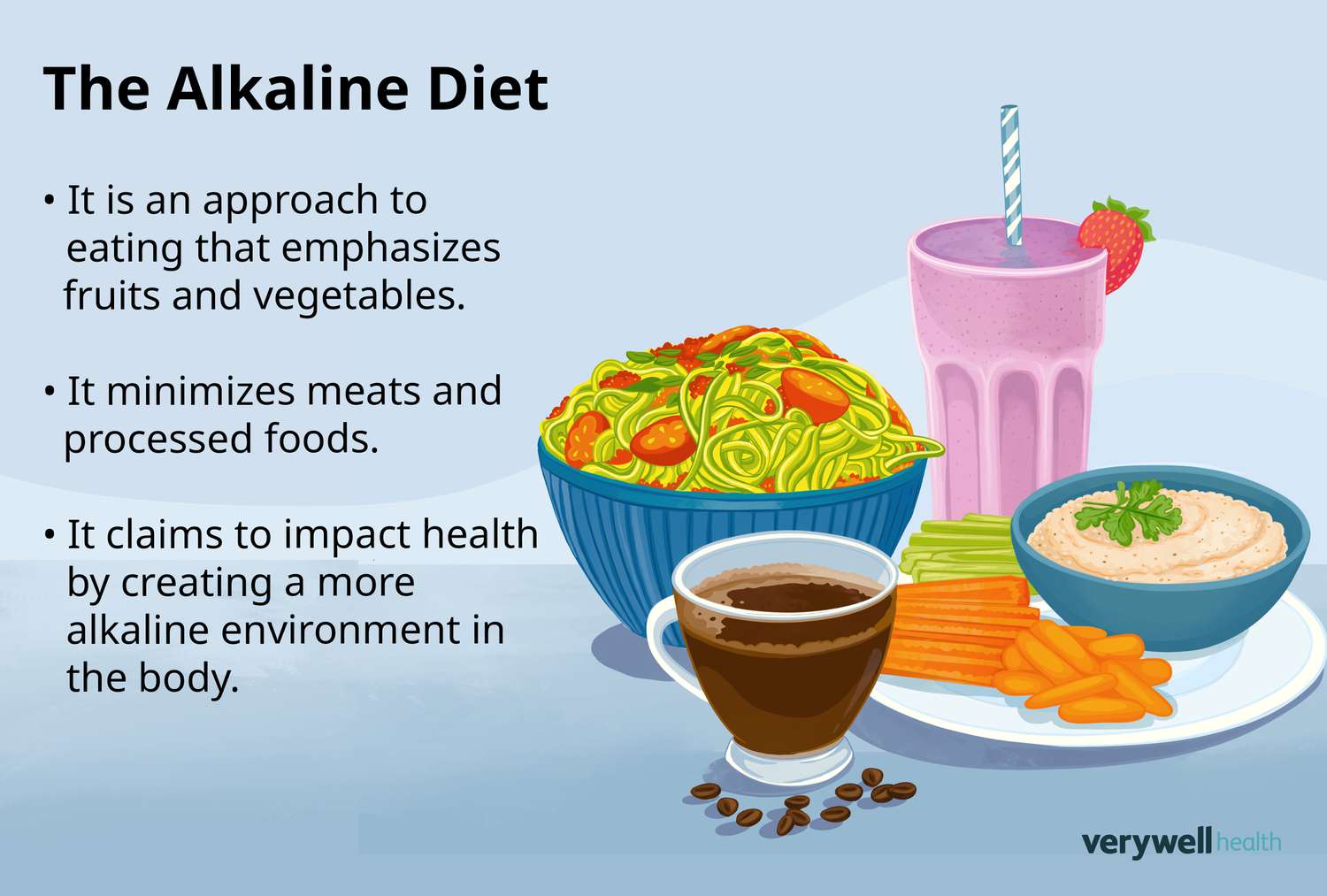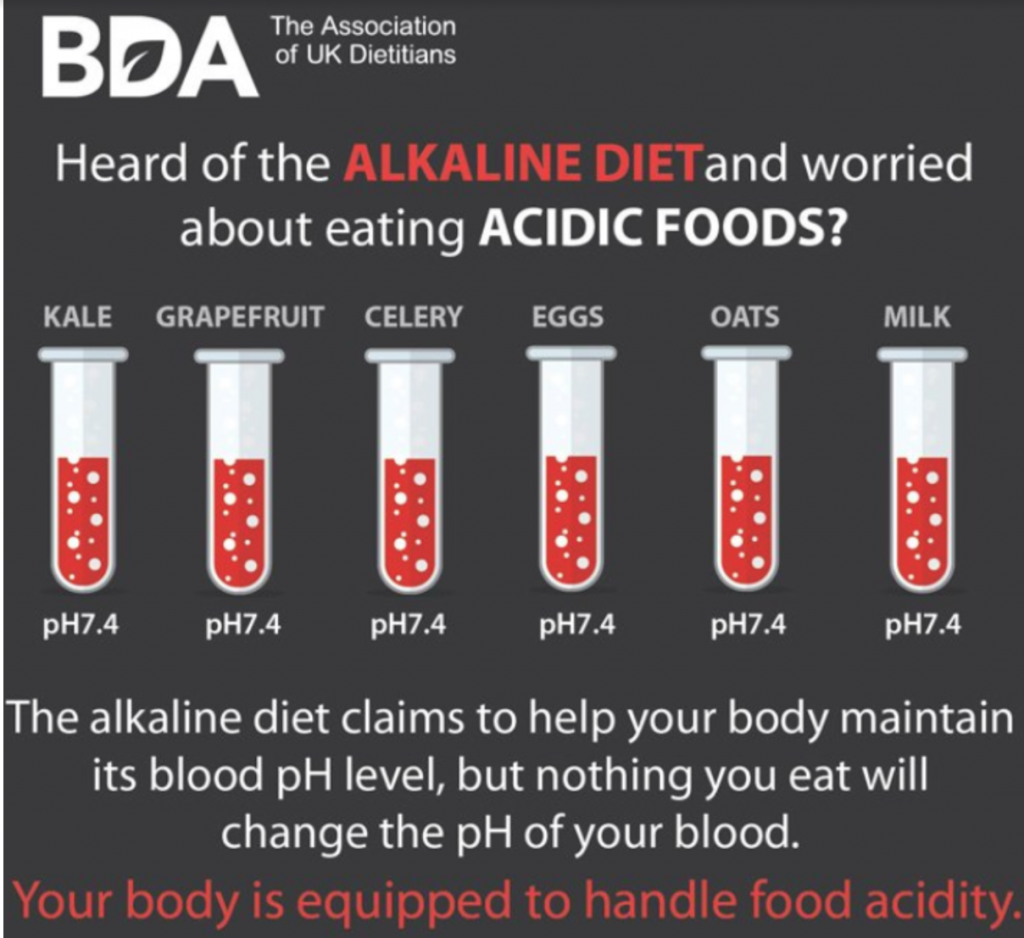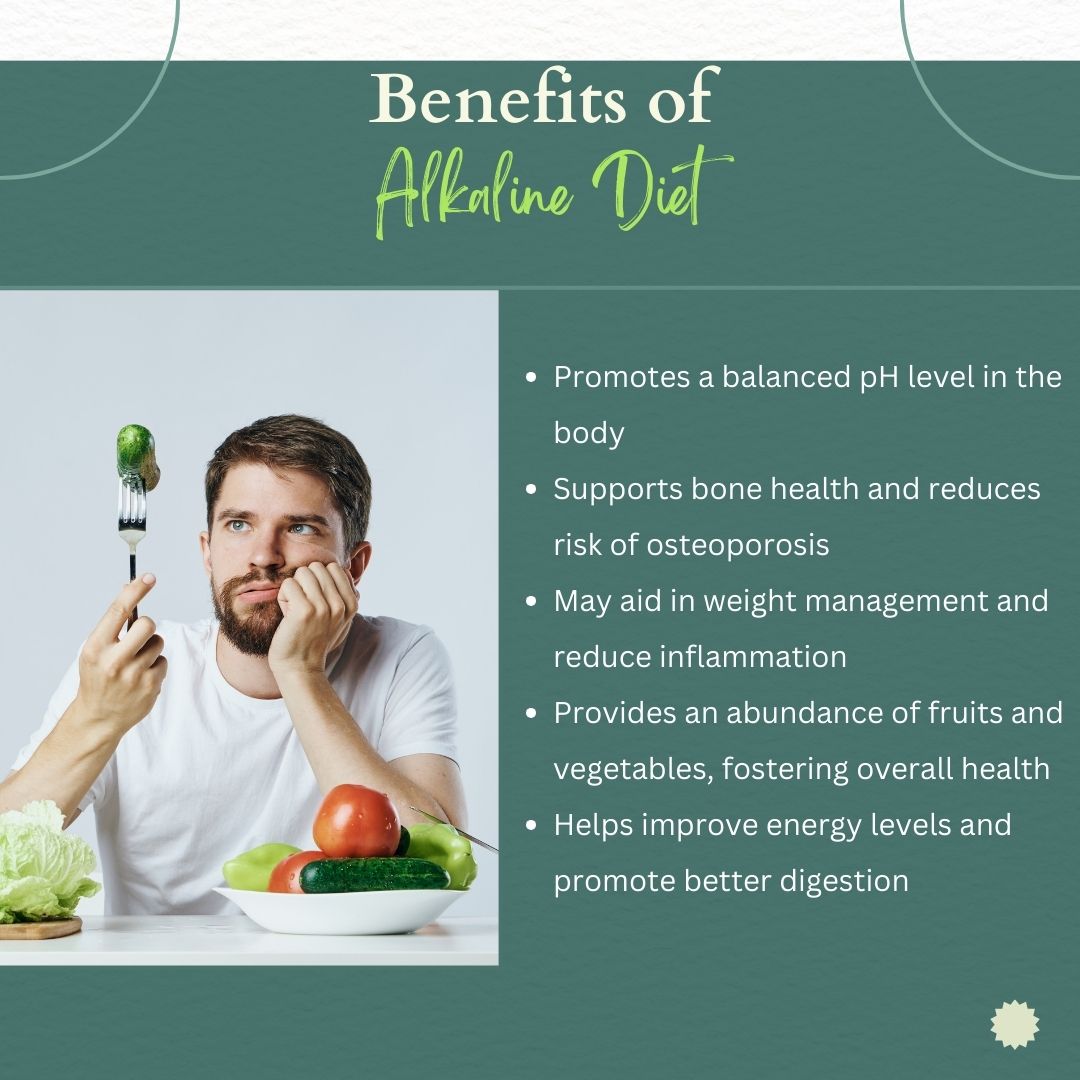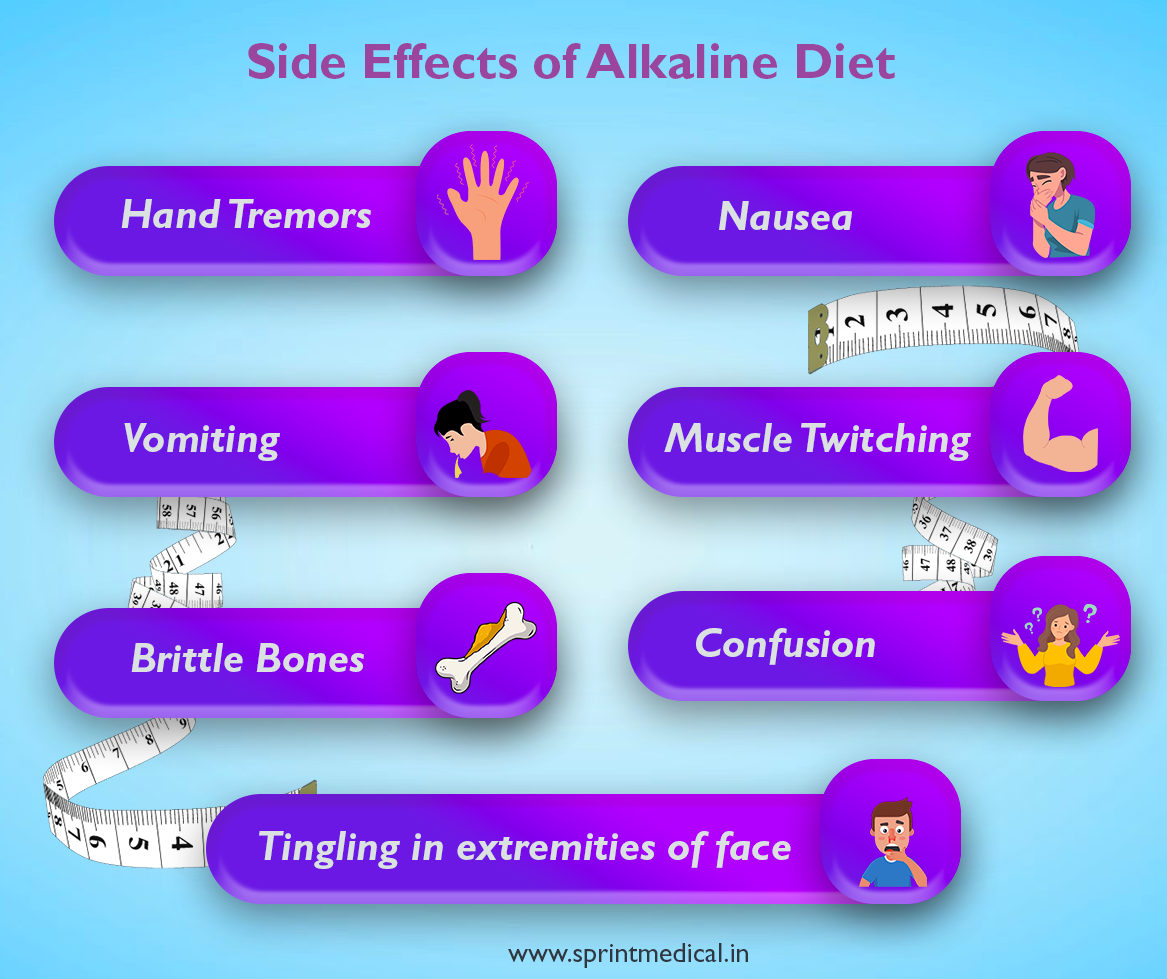What Is the Alkaline Diet

[Source: verywellhealth.com]
The alkaline diet, also known as the alkaline-ash diet or alkaline-acid diet, is a nutritional approach that focuses on consuming foods based on their pH levels and their potential impact on the body’s acid-base balance. [#1]
At its core, this dietary strategy emphasizes eating foods that are alkaline (pH greater than 7) while limiting acidic foods. The fundamental belief behind this approach is that your food choices can affect your body’s pH levels and overall health. [#2]
The basic principle revolves around the idea that the foods you consume can significantly influence your body’s internal environment. This eating pattern suggests that the acid or alkaline load of your food directly impacts your health and metabolism. [#3]
Unlike many restrictive eating plans that focus solely on calorie counting, the alkaline diet takes a different path by concentrating on food quality and its effects on body chemistry. This approach shares some similarities with intuitive eating practices, as both methods encourage mindful food choices rather than strict calorie restrictions.
Key Components of the Alkaline Diet
- Emphasis on fresh vegetables and fruits
- Limited consumption of processed foods
- Reduced intake of dairy and animal proteins
- Focus on plant-based protein sources
- Regular hydration with alkaline water
How Does the Alkaline Diet Work

[Source: dieteticallyspeaking.com]
The alkaline diet operates on a straightforward principle: foods can influence your body’s acid-base balance. This eating approach classifies foods based on the amount of acid they generate during digestion.
At its foundation, the diet promotes replacing acid-forming foods with alkaline alternatives to support better health outcomes. This shift in eating patterns can lead to natural weight management, similar to how some people experience success with weight loss without exercise. [#4]
Food Classification System
- Alkaline-forming foods: Most vegetables, fruits, nuts, and legumes
- Neutral foods: Natural fats, starches, and sugars
- Acid-forming foods: Meat, fish, dairy, eggs, grains, and alcohol
The diet suggests that consuming too many acid-forming foods might disrupt your body’s natural balance. This imbalance could potentially affect various bodily functions, including how your hormones regulate weight.
Implementation Steps
- Start by gradually increasing alkaline food intake
- Monitor your body’s response to dietary changes
- Maintain proper hydration with water pH above 7
- Reduce processed food consumption
- Include more plant-based protein sources
The practical application involves reading food labels, understanding pH values, and making mindful choices about meal composition. While the scientific community continues to research its effectiveness, many followers report improved energy levels and better weight management results.
Benefits of the Alkaline Diet

[Source: continentalhospitals.com]
Following an alkaline diet offers several science-backed advantages that extend beyond weight management. Research shows this eating approach can support overall health through various mechanisms.
Physical Health Benefits
- Muscle Preservation: Studies indicate that maintaining an alkaline balance helps preserve lean muscle mass, particularly important for aging adults who want to stay active and maintain strength.
- Cardiovascular Health: Research suggests a connection between alkaline food consumption and reduced risk for high blood pressure and stroke.
- Back Pain Relief: Some individuals report decreased back discomfort when following this dietary approach.
- Bone Health Support: The diet may contribute to maintaining strong, healthy bones.
Lifestyle Improvements
The alkaline diet naturally steers you away from processed foods while encouraging whole food consumption. This simple shift often leads to better eating habits and improved nutritional intake. Many people find this eating style complements their fitness routines, making it easier to maintain an active lifestyle and perform fat-burning stretches effectively.
Weight Management Support
While weight loss isnt the primary focus, many followers report steady progress in reaching their body composition goals. The emphasis on whole foods and vegetables naturally reduces calorie intake while increasing nutrient density. This combination supports sustainable weight management without extreme restrictions.
The benefits become more pronounced when you pair this dietary approach with regular physical activity. Creating this synergy helps optimize results and supports your journey toward improved health and fitness goals.
Disadvantages of the Alkaline Diet

[Source: printmedical.in]
While the alkaline diet offers various health benefits, it’s important to understand its potential drawbacks before starting this eating plan. Several challenges and limitations might affect your ability to maintain this diet long-term.
Nutritional Concerns
The most significant concern with the alkaline diet relates to nutritional adequacy. One comprehensive review published in 2022 highlighted that this diet could potentially be harmful due to its severe restrictions on essential nutrients like protein and calcium.
- Protein Deficiency Risk: The diet’s limitations on animal products can lead to inadequate protein intake, which may affect muscle maintenance and recovery. Some followers report feeling constantly hungry due to insufficient protein consumption.
- Calcium Restrictions: By limiting dairy products, you might struggle to meet daily calcium requirements, potentially affecting bone health over time.
- Essential Nutrient Gaps: The restrictive nature of this diet might lead to deficiencies in vitamin B12, iron, and other vital nutrients typically found in acid-forming foods.
Practical Challenges
Beyond nutritional considerations, the alkaline diet presents several practical hurdles that can impact your daily life and slow down your metabolism if not properly managed.
- Limited Food Choices: The strict categorization of foods as acid or alkaline-forming significantly reduces your dining options.
- Social Dining Difficulties: Eating out or attending social gatherings becomes challenging due to limited menu options.
- Cost Considerations: Fresh, organic produce and specialty alkaline products often come with higher price tags.
- Time-Intensive: Meal planning and preparation require extra time and effort to maintain alkaline balance.
Sustainability Issues
The restrictive nature of the alkaline diet can make it difficult to maintain over extended periods. Many people find themselves reverting to previous eating habits, similar to what happens when stopping bread consumption abruptly. This cycle of starting and stopping any diet plan can impact your overall health and weight management goals.
Alkaline Diet Recipes

[Source: dyln.co]
Ready to start your alkaline journey? These nutrient-rich recipes will help you maintain a balanced pH while satisfying your taste buds. Let’s explore some delicious options that align with alkaline diet principles.
Breakfast Options
Starting your day with alkaline-friendly foods sets a positive tone for healthy eating. Professional dancers and athletes often incorporate these breakfast choices into their routines for sustained energy throughout the day.
- Green Smoothie Bowl: Blend spinach, kale, cucumber, avocado, and almond milk. Top with chia seeds and fresh berries.
- Quinoa Breakfast Bowl: Cook quinoa in coconut milk, add sliced almonds, fresh figs, and a drizzle of maple syrup.
- Alkaline Oatmeal: Prepare steel-cut oats with almond milk, topped with alkaline fruits like berries and figs.
Lunch and Dinner Ideas
These filling main courses provide substantial nutrition while maintaining alkaline balance. Each recipe incorporates a variety of vegetables and plant-based proteins.
- Buddha Bowl: Mix steamed broccoli, sweet potatoes, quinoa, and fresh greens with tahini dressing.
- Zucchini Noodle Stir-Fry: Spiralize zucchini and toss with bell peppers, mushrooms, and sesame seeds.
- Lentil and Vegetable Soup: Combine green lentils, kale, carrots, and celery in vegetable broth.
Snacks and Sides
Healthy snacking helps maintain steady energy levels throughout the day. These alkaline-friendly options are perfect for between meals or as side dishes.
- Cucumber and Avocado Bites: Top cucumber slices with mashed avocado and hemp seeds.
- Roasted Sweet Potato Wedges: Season with olive oil, turmeric, and black pepper.
- Green Bean Almondine: Steam fresh green beans and top with toasted almonds.
Hydration Options
Staying hydrated supports the alkaline balance in your body. These beverages offer refreshing alternatives to plain water.
- Lemon Water: Start your day with warm water and fresh lemon juice.
- Green Juice: Blend cucumber, celery, green apple, and ginger.
- Herbal Tea: Choose from options like chamomile, peppermint, or nettle tea.